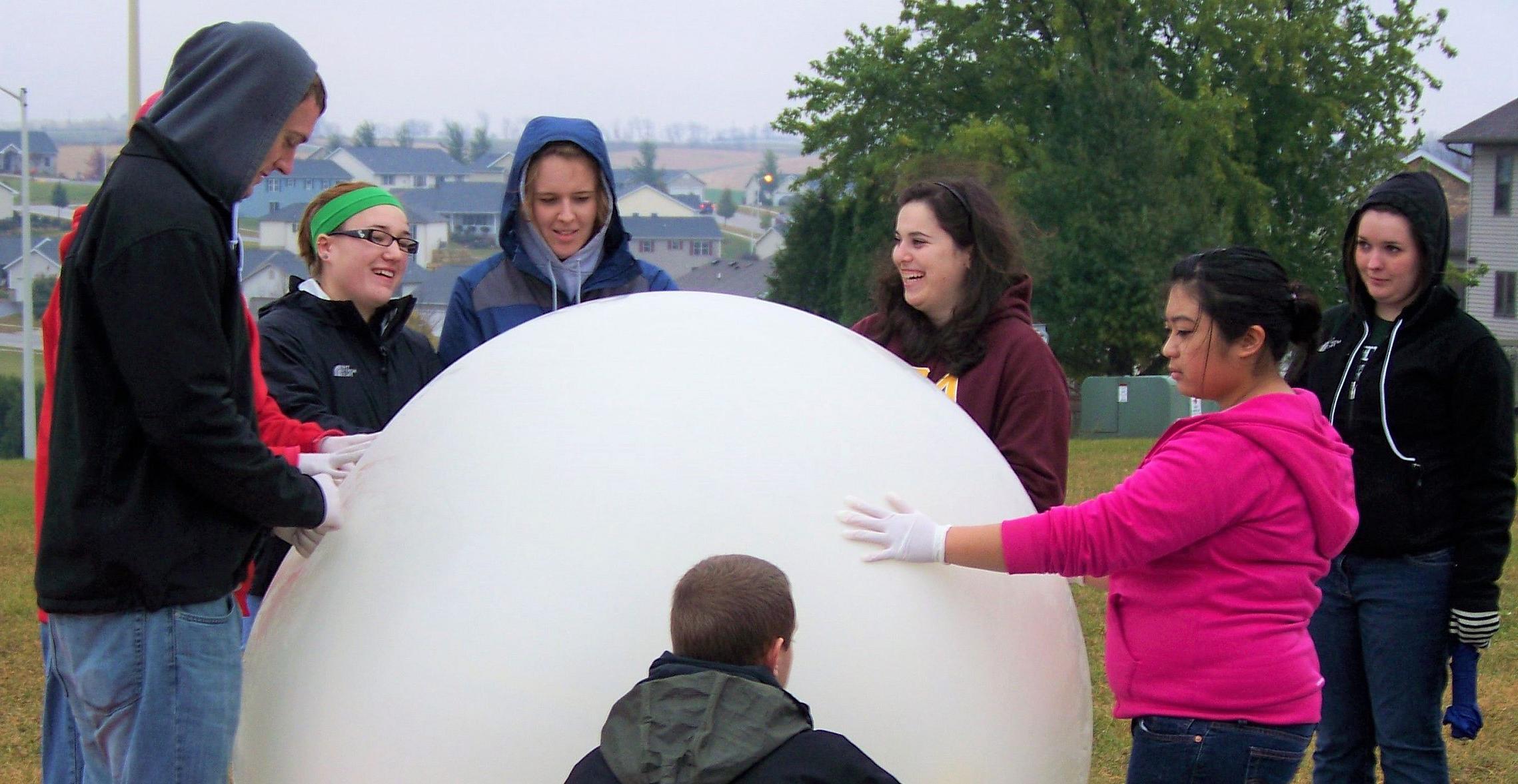Climate Science Course Descriptions
Scroll down to read descriptions of the climate science courses offered at Carthage, or click on these links for additional resources:
Exploring Climate Change (LAB SCI) (SE) (OC)
BIO 1011 / 4 credits
This course explores the science of global climate change, focusing primarily on biology. Students will study the effects of climate change on organisms and ecosystems as well as the role living organisms play in maintaining the global climate. Implications of climate science for public policy will also be examined. Lecture and laboratory.
Offered in Alternating Spring
Biogeography (NLAB) (SE)
GEO 2450 / 4 credits
Biogeography investigates spatial patterns in the biosphere to show how Earth history, evolutionary and ecological processes, and contemporary environments have shaped patterns of biodiversity. Using a studio classroom setting, biogeography studies spatial distributions of organisms and the factors influencing those distributions, examining the interactions of the physical environment and sustainability of biological organisms through time.
Meteorology (NLAB) (SE)
GEO 2550 / 4 credits
A study of meteorology and weather through the analysis of atmospheric processes and the composition of the atmosphere. Emphasis is placed on dynamic meteorology through understanding the processes responsible for weather, climate change, and related environmental issues.
Climatology (LAB SCI) (QR)
GEO 3700 / 4 credits
An overview of atmospheric processes and climatic elements, followed by a more detailed examination of the spatial distribution of climates. Particular emphasis will be placed upon macroscale climates of the global continents and climate change, culminating with microscale applications of the principles and concepts within the local area.
Prerequisites: GEO 1600, ENV 1000 or consent of instructor
Fundamental Physics (LAB SCI) (SE) (QR)
PHY 1200 / 4 credits
This course covers fundamental physical principles including descriptions of mechanical, electrical, wave, and atomic phenomena. The course highlights ways in which physical principles are used to describe and understand the vast array of observable phenomena in the universe. Students will study applications of physics to a range of important historical and contemporary scientific and technological questions. This course is intended for potential physics majors or students planning further study in the physical sciences. Lecture and laboratory.
Prerequisite: High school pre-calculus. Students who intend to major or minor in physics are advised to enroll concurrently in MTH 1070, 1120, or 1220 or departmental approval.
Offered in Fall
Physics I (LAB SCI) (SE)
PHY 2100 / 4 credits
This non-calculus-based course provides an introduction to the essentials of mechanics, heat, and sound for students with no prior training in physics. PHY 2100 in combination with 2110 is the recommended sequence for majors in health and life sciences whose programs of study do not require calculus. Lecture and laboratory.
Prerequisite: High school algebra
Offered in Fall
General Physics I (LAB SCI) (SE)
PHY 2200 / 4 credits
This course provides a calculus-based introduction to 3D kinematics, Newton’s laws, simple harmonic motion, mechanical properties, rotational kinematics, and heat. PHY 2200 is required for physics majors, engineering students, and chemistry majors, and it can be counted as an elective toward a math major or minor. Lecture and laboratory.
Prerequisites: PHY 1200 or CHM 1020 or EGR 1100 with a grade of C- or better and concurrent enrollment in MTH 1220, or departmental approval
Offered in Fall/Spring
Science of Global Climate Change
PHY/GEO 4150 / 4 credits
This course is designed to provide an understanding of the science of planetary climates for students with a background in physics and/or geography. Emphasis will be placed on the physical processes that control the state of Earth’s climate, which include the roles of energy and moisture, atmospheric circulation, and atmosphere-ocean interaction. Cross-listed with geospatial science.
Prerequisite: GEO 3700, PHY 2200 or consent of the instructor
Offered in Fall/J-Term/Spring

